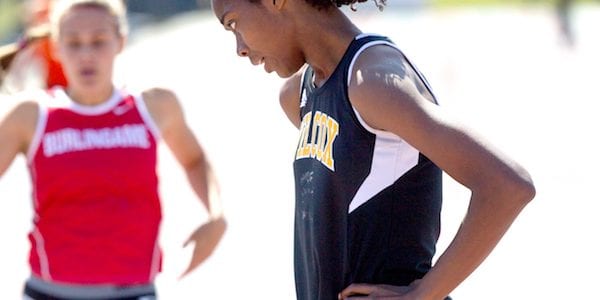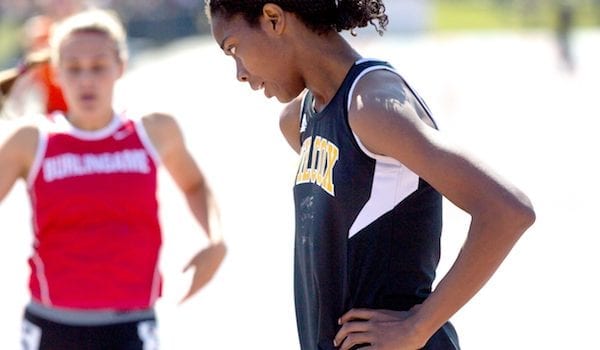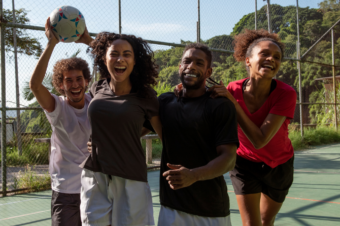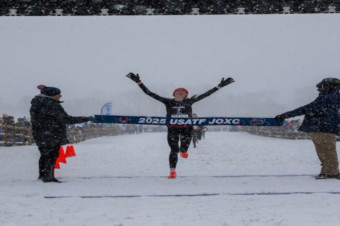


Overthinking. It is one of the biggest mental challenges in competitive sports. In my 16 years of practicing mental skills training, I have seen it happen across all sports, both genders, youth, collegiate and pros. No matter who you are, at some point, overthinking will show up. It’s simply a matter of time.
On the field (court, course, etc.), overthinking translates to very specific body language. Can you guess what it is? Think about a time you (or your child) felt overwhelmed and started thinking way too much. What did you notice? What changed? The tell tale sign of overthinking is … slow feet. When an athlete starts grinding away on thoughts, and especially emotions, the feet slow down. Way down.
Why is overthinking such a common occurrence? There are several reasons.
• AGE Kids age 10-13 (pre-adolescence) go through the second biggest brain development phase of their life. As a result, there is a lot of restructuring going on in the brain and their ability to be self-aware grows tremendously. This is a good thing long-term, but it can cause some short-stumbling blocks.
• NERVOUSNESS & ANXIETY Competitive sports are pressure-filled and high achievers tend to put a lot of pressure on themselves. Additional stress may come from parents, coaches and expectations (I must get a scholarship!). Consequently, if an athlete is someone who is prone to stress, all of this pressure can create an overwhelming amount of mental stimulation.
• PERFECTIONISM So many athletes suffer from perfectionism. That is, the expectation that anything that isn’t perfect is failure. This mindset leaves athletes feeling frustrated and creates worry about whether or not they will ever be successful. In addition, nervousness and anxiety often follows.
Ironically, kids who struggle with overthinking when they are young gain an advantage over those who are able to keep it simple throughout their youth sport career. Don’t get me wrong, keeping it simple is key. However, if your first struggle is when you are 19 playing Div.-I college sports, that’s a tough environment to learn how to overcome overthinking. Tough, but not impossible. Kids who struggle when they are younger and learn to manage their thinking are able to build confidence in their ability to overcome future challenges. There’s no shortcut here.
Can all of this overthinking be stopped? YES.
Here’s how:
STEP 1: Build awareness
• In what situations do you tend to overthink? Missed shot on goal, (soccer)? Missed block on defense (volleyball)? When a coach/teammate yells at you?
• What do you say to yourself in those situations? “Why did you do that?”; “That was dumb!”; “Not again!”
• Does what you say to yourself help or hurt your performance? If the answer is, “It hurts my performance,” proceed to step 2.
STEP 2: Create simple, concise, action-based instructions for each situation.
Examples:
1. Missed shot = “Head down, far post”
2. Missed block = “Get up!”
3. Getting yelled at = “Soft touch, carry.”
STEP 3: Affirm success
It’s always important to remind yourself of what your consistent strengths are that hold up in various situations.
1. “I’m a good decision maker under pressure.”
2. “I play hard in tough games.”
3. “I train hard and am in great shape.”
Thinking for excellence takes practice. Most athletes find it relatively easy to manage their thinking when things are going well. Consequently, the challenge is to manage thinking under pressure and after a mistake or two. Keeping your thoughts simple is mandatory for mental toughness.
Haven’t mastered your mental game yet? Take pride in working through the hard stuff. Dealing with mental challenges is as important as any physical skill you possess. And, it’s guaranteed to pay dividends in your future, both in sports and beyond.
Erika Carlson is a certified mental trainer and owner of Excellence in Sports Performance in Pleasanton.
_______________________________
GET CONNECTED:
Follow SportStars on Twitter & Instagram | Like us on Facebook | Subscribe!
_______________________________
[bsa_pro_ad_space id=18]









No comments so far.
Be first to leave comment below.